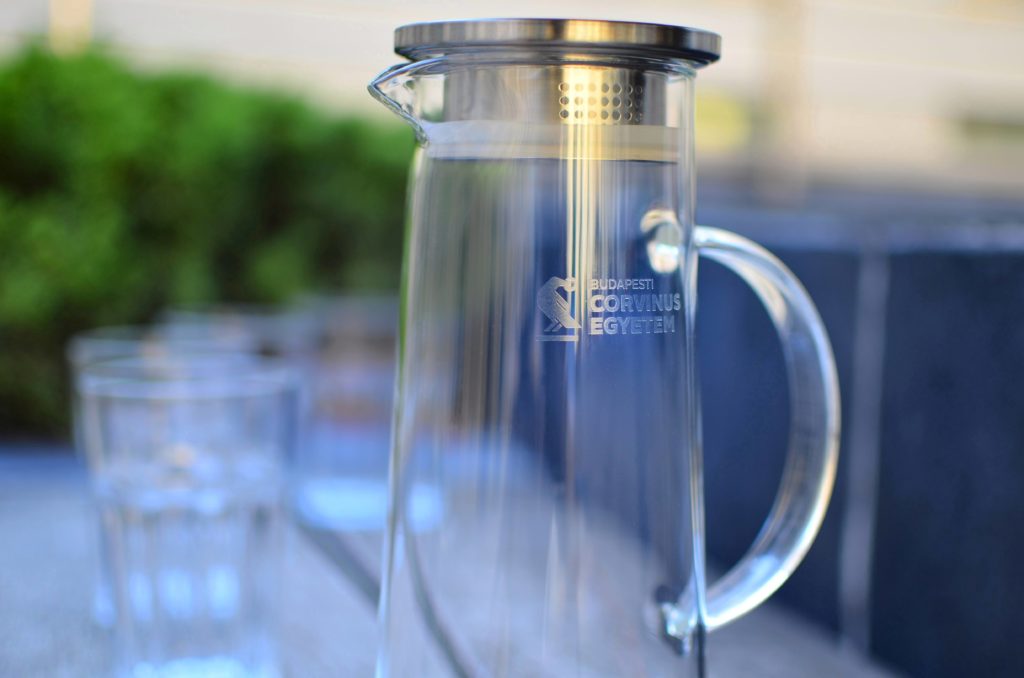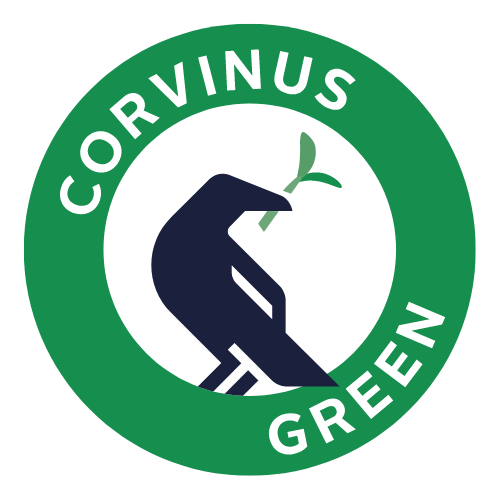The Corvinus Green Story: For a Sustainable University

Corvinus has been named the most sustainably improved university in the UI GreenMetric World Top 10 on 12 December. “Through engagement and volunteering, we have been able to change our habits in order to operate more sustainably. To achieve significant change, we need to act together,” said Ákos Domahidi, Chancellor of Corvinus, at the online award ceremony.
This development has been supported this year by organisational, instrustructure and community projects. The story began in 2021 when Corvinus joined the GreenMetrics sustainability initiative. At that time, we were ranked 869th out of 956 universities in eighty countries, and the intention was that we should choose a greener and more sustainable path. To make a difference, we have developed a Sustainability Action Plan for 2022, which was presented by Chancellor Domahidi Ákos to the Presidential Board in early 2022. As well as setting up a conscious action plan, detailed and accurate completion was a significant factor in the almost 300 correct steps forward on the list.
Academic and service area colleagues have joined forces to work towards these goals. The first step was the Green July campaign, where we shared sustainability-related content, and created Corvinus Green subpage. We also challenged university staff to think through a questionnaire, sharing ideas such as reducing printing, more colourful biodiversity, selective waste collection, and optimising water, electricity and air conditioning for energy efficiency.
Community engagement for more sustainable offices in the autumn semester
Almost 90 percent of colleagues, 35 departments in total, have joined the ban on plastic bottles in exchange for glass cups and jugs. In parallel, 41 water points have been installed in the university buildings, where staff and students alike can fill up with good quality drinking water.
New desk lamps with energy-saving light bulbs have been provided to Corvinus employees, who have pledged to use ceiling lighting only when needed to which 22 departments have so far joined the project. Individually controllable table lamps allow us to reduce the energy consumption of ceiling lighting to a fraction of its original size. Applications remain open to departments.
We have also launched the optimisation of household appliances, with Campus Services staff visiting volunteer departments and making energy efficiency recommendations. Departments meeting the recommendations can receive sustainable Fair-Trade coffee from the central budget. The project is expected to end in 2023.
In addition to electricity consumption, heating is also a focus. Although Corvinus is in a good starting position in terms of energy prices, as the recently signed long-term energy contracts give it a competitive advantage, Ákos Domahidi says that “we cannot afford to waste this advantage, we have to build our sustainability efforts on it”. To achieve this, we have set the heating in the buildings at 20 degrees Celsius, kept only the south door open in the main building and optimised the timetable to suit heating possibilities.
Finally, we reduced our gas consumption by 32 percent in November, a saving of more than 29,000 cubic metres compared to November 2019, largely as a result of these measures.
Lower temperatures have been a problem in many offices as winter sets in, so gift blankets have been given to colleagues, and operations staff are working to address the unique nature of the offices. In addition to energy consumption, water consumption has also been reduced, with aerators on taps saving 10-13 litres of water per minute.
We also wanted to strengthen the circularity. We asked colleagues to hand in their unused IT tools to give them a new meaning. Some of this will be reinvested in operations and some will be donated to our community partners through the Science Shop.
An institute and competence centre have also been established
The Institute of Sustainable Development was established to ensure that the University’s education and research portfolio emphasises the economic, social and environmental dimensions of sustainability. True to its name, the institute is multidisciplinary and reflects an integrated approach to the natural and social sciences. The four disciplines covered by the Institute are economic geography and urban development, sustainability management and environmental economics, tourism and agricultural economics.
The Corvinus ERS Hub (Ethics, Responsibility and Sustainability) coordinates projects and initiatives related to ethics, responsibility and sustainability at the university level. “We started the ERS Hub with projects embraced by the members of the Steering Committee, with the aim of setting a good example and inspiring university citizens – our colleagues and students – to join the platform”, said Katalin Ásványi, Chair of the ERS Hub Steering Committee, in an interview with Közgazdász Online student magazine.
The importance of sustainability and environmental protection is also increasingly reflected in university courses. János Áder, former President of Hungary held a lecture in September this year as part of the course “Hungary’s role in achieving global sustainability and climate goals”, where he spoke to students about the exposure of the Carpathian Basin and possible solutions to the drought and the global climate crisis.
Next year, we will continue on the road with new projects
Although we have improved nearly 300 places in the UI GreenMetric world ranking this year, according to Ákos Domahidi, “the award is not only a recognition but also a responsibility to continue on our sustainability path in the future”. In addition to setting up a conscious plan of action, detailed and accurate completion was a significant factor in making progress on the list. We are currently ranked 577th, which means we have room for improvement, so the Corvinus Green project will not stop in 2023.
We are planning a comprehensive project to promote selective waste collection, and we also want to make procurement more sustainable. We plan to open our Ménesi Campus next autumn, which will be the first higher education investment in Hungary to meet the strict sustainability criteria of the Leed Gold certification, as well as the AA+ rating for outstanding energy efficiency.
We also continue to welcome ideas from our staff and students, which we hope will help us to make great strides next year. The Corvinus University of Budapest commits itself to supporting community sustainability activities and to more sustainable operation, as collective action is needed to achieve significant change.
